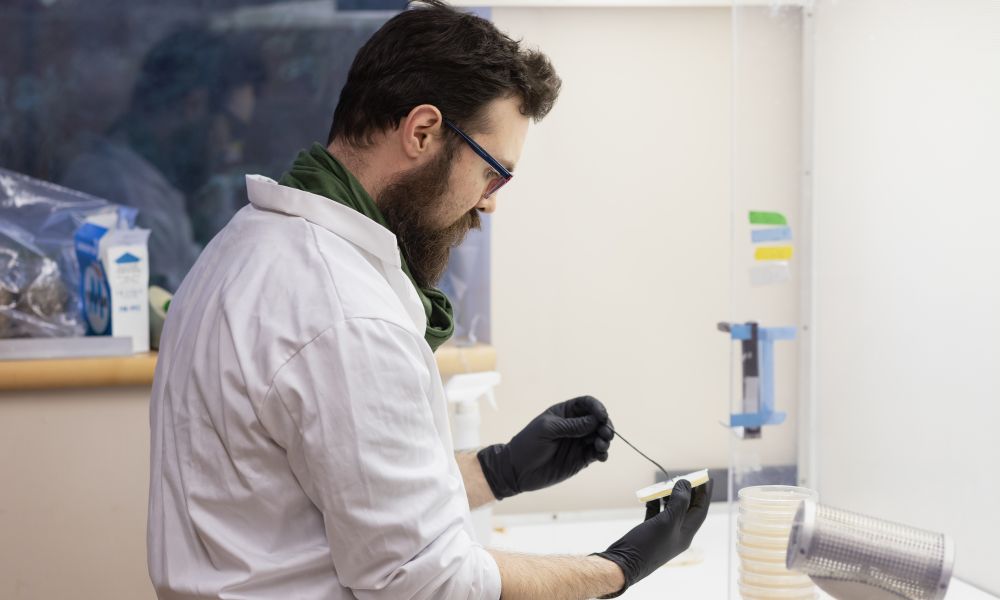College of Forestry professor Gerald Presley is working to develop a new method to clean up agricultural plastic pollution
The use of a plastic film in agriculture is increasingly being considered as an option for water conservation. The use of plastic films comes with the risk of contamination of soil with non-biodegradable plastics and threatens the long-term fertility of farmlands. College of Forestry’s Gerald Presley is investigating whether fungi could help clean up this environmental issue.
“Remediation methods must be developed to efficiently remove these materials from land and we believe fungi can help,” he said.
Presley, assistant professor in the department of wood science and engineering, just launched a new four-year project to explore the possibility of using fungi to help decompose agricultural plastics pollution. The project is a joint venture with the United States Department of Agriculture’s Natural Resources Conservation Service, which supports the development of new work that can contribute to natural resource conservation.
Presley’s lab specializes in wood durability and applied mycology and he saw this as opportunity to build on that work and explore a new use of fungi. Fungi are known for being biodegrading powerhouses. There are many different species of fungi with really diverse metabolic capabilities, so there’s a fungi available to break down most any natural, organic material, he explains.

“It’s their job in the global ecosystem to degrade stuff,” he said. “We’re always interested in looking more deeply into the capabilities of fungal metabolism and finding fungal processes that can be advantageous for human use.”
Presley has worked with fungi to break down other challenging material and he saw potential for it to be helpful with polyethylene mulch. The plastic pollution he’s working with comes from polyethylene film residue, which is getting used more and more for water conservation on agricultural lands around the globe.
Plastic is notoriously difficult to turn into biodegradable material, so cleaning it up won’t be as easy as planting some extra fungi on the land, he explains. The key will be pre-treating the plastic material with another process to help break it down into something the fungi can handle.
“We’re working to develop a one-two punch to knock out agricultural plastics pollution using ultrasonic chemistry and fungi,” he said. “The plan is to develop pre-treatments for plastics that will cook up a readily digestible snack for decay fungi, who will then turn the treated plastic into innocuous and biodegradable material.”
Presley is working with Ph.D. student Leon Rogers to experiment with different combinations of ultrasonic chemistry and fungi processes in the lab to see what works best – before testing them in the field. The researchers have partnered with landowners that have a ranch outside of Stayton, Oregon for the field work side of the project. The ranch was rented out for hemp farming a few years ago, and returned to the landowners with heavy plastic pollution that must be cleaned up if the land is going to be restored to its original productive capacity. Presley and Rogers will work with the landowners to develop tools and processes to tackle the pollution on the ranch – with the hope of being able to translate their findings into a broader application for agricultural pollution and environmental cleanup.
“Our long-term goal is to develop technology that can enable farmers to pull polyethylene contaminants out of their soil and dispose of it on-site in an environmentally friendly manner,” said Presley.

